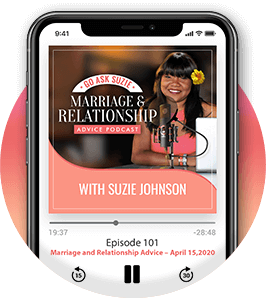![]() Thank you for this incredible website! I recently forced my “best friend” to admit to me she was having an affair with my partner of five years (with whom I have two children). I have challenged myself to forgive my partner, although I will never allow the “best friend” to be in my or my family’s lives ever again. My partner and I have been having intense, honest, heartfelt connections over the last month since the bomb dropped. I have basically given him two requirements to move forward as a union:
Thank you for this incredible website! I recently forced my “best friend” to admit to me she was having an affair with my partner of five years (with whom I have two children). I have challenged myself to forgive my partner, although I will never allow the “best friend” to be in my or my family’s lives ever again. My partner and I have been having intense, honest, heartfelt connections over the last month since the bomb dropped. I have basically given him two requirements to move forward as a union:
#1: He must commit to being monogamous with me. (He has agreed.)
#2: He must cut off contact with this other woman. Basically, he must cut her out of his life.
More on #2: He has not agreed to this. Because we are being so honest, he has explained that this doesn’t feel right to him. He explains that she has been nothing but a “sweetheart”. He says he feels a connection with her and doesn’t want to have to lie to me if he ever wants to have a beer with her or have a “processing” conversation.
Am I being unreasonable to cut off contact with her? We are in a new era. Maybe they do need to process what happened. Maybe they do need some closure. Or maybe they need to explore their connection.
Whatever it is, I can’t always wonder what he’s up to, whether or not he is lying to me, or whether they are hanging out together. Am I being unreasonable?
![]() Thank you for the opportunity to serve.
Thank you for the opportunity to serve.
I chose to answer your question today because in my opinion, it’s one of the more important ones surrounding this issue: the question of whether or not it’s okay for wayward partners to maintain relationships with ex-affair partners. But before I delve into that question, let me answer you directly.
You asked, are you being unreasonable by asking him to end all contact with the ex-affair partner. My answer? NO. You are in no way being unreasonable. In fact, from my perspective, not only is this a reasonable request; it’s a request that totally has common sense.
That said, the fact that your partner can’t see this, in my opinion, is the real issue here because this indicates to me that he may still have some emotional attachment to the ex-affair partner, which can be very dangerous to your primary relationship. The question, of course, is how can you communicate to your partner that continuing the association is dangerous and puts a threat and a strain on your primary relationship… without coming across as jealous and suspicious?
I wish I could give you a definitive formula for doing this, but alas, there isn’t one. The only thing I can say to you is that communication IS the answer. Finding the right way to communicate is, of course, the challenge. So to help you with that challenge, I’m going to share with you a communication script which you can use as a guide to help you have this conversation. However, before I share the script with you… there’s one obstacle that must be removed BEFORE you have this conversation with your partner. What’s this obstacle? It’s your private anger (grudge) towards the ex-affair partner.
Let me explain why it’s important for you to remove your anger towards HER before you attempt to talk to him about removing her from his life.
Reason #1: Anger distorts communication. Just like how bad weather distorts cellphone communications. And it doesn’t matter if the anger is suppressed, repressed or expressed. If it’s there, it’s going to distort your communications. He will sense it in your energy, he will feel it in your voice, and he will know it by the words you use. Why is this a problem? Well, if he believes it’s just your anger talking, chances are he won’t trust you. He’ll think you’re simply jealous of her, and that will cause him to discredit your suggestions.
Reason #2: Anger makes you a hostile communicator. As long as you’re nursing a grudge, hanging on to a buried resentment or carrying around private hate towards this other woman… that anger turns you into a hostile communicator. So, no matter how “sweetly, calmly or logically” you try to approach this subject, the hidden anger will twist your communication — turning your words into weapons of attack. Where does this leave him? Well, if he perceives you as hostile, then his only option is to defend himself. In this case, the way to defend himself is by NOT giving in to your request.
Bottom line?
Before attempting to communicate with him on this subject again, take the time to heal your own anger and resentment towards the other woman. Allow yourself to release any mental grudges or private hate you may have been holding towards her.
Am I saying you should just allow her to get away with what she did? NO. That’s not what I’m saying. But think about it like this: will holding on to anger, hate or resentment towards her UNDO what she did? If you punish her in YOUR mind (wishing bad, evil, pain and pestilence to befall her, to teach her a lesson), will it cause HER to suffer? The real question here is, can we really punish others in our minds without also punishing ourselves? The answer is NO. Here’s the reality: NO THOUGHT LEAVES THE MIND OF THE THINKER. Whatever you think about her, wish for her, fantasize happening to her… you do unto yourself. Thoughts of hate towards her don’t leave your mind, they don’t affect her… BUT they do affect you. This is why it’s often said that unforgiveness is like drinking poison in hopes of killing someone else. (It simply won’t work). So keep in mind, by healing your anger and releasing your resentment towards her… it’s YOU who is freed (not her). It’s you who finds peace (not her). It’s you who will be able to communicate and connect with your partner again.
Now, notice that I’m using the word “heal”. That’s because anger is self-wounding. Anger is the symptom created by our own attack thoughts towards ourselves, our circumstances or others. So, never, ever tolerate anger. Instead, your job is to heal the wounds and stop re-wounding yourself by attacking her in your mind. Do you think you can do that? I have faith you can. Now with anger out of the way… you can use the following script to guide your next conversation.
Coaching Exercise
How to Help Your Partner Understand YOUR Feelings About His Ex-Affair Partner
INSTRUCTIONS
Ask your partner to try this exercise with you. It’s called “10 minutes in my shoes.” What you will do is write a script of what happened and how you feel about what happened, but reverse everything that’s happened to you as if it has happened to him. And when I say everything, I mean as many details as you can. For example, the ex-affair partner’s name is Jane — change it to Jim. (You get the picture.)
Important notes:
- The exercise must last no more than 10 minutes (use a timer).
- Pre-write your script and read it word for word.
- Choose a time of relative calm to do the exercise.
- Use my script as a guide for writing your own.
- Don’t worry about getting it right; focus on getting it done.
THE STEPS
- Ask for his cooperation in doing the exercise.
- Be prepared to handle his objections and resistance.
- Set the timer and read your script.
- Ask for his feedback (after reading the script).
- Watch for any softening of his heart during the 5-14 days following the exercise.
- Ask for a commitment to remove her from his life during those times.
Sample Communication Script
The Native Americans advise us that if we really want to understand someone, we should try to walk a mile in their shoes. Here’s what you do… I want you to do your best to imagine how you’d feel if exactly what happened to me had actually happened to you. I want you to do this exercise —jx not to create pain or cause guilt… but to create a shared sense of understanding between us, so that this experience can bring us closer together rather than further apart. The important part of this exercise is for you to know that you’re safe… you can allow yourself to experience whatever you think I might have experienced, knowing that it’s temporary. Just a flash.
Imagine that you had a best friend for (insert number of years) named Jim. You guys had always been close. Imagine that Jim and I also shared a solid friendship… nothing that caused you any alarm, but you knew we were also close. Now imagine that, somewhere along the line, you began to get some unsettling feelings about Jim’s feelings towards me… Now, close your eyes and allow yourself to really imagine how awkward… how alarming those first pangs might have been. Imagine the tightness in your chest, the heaviness in your gut… You know something isn’t right, but you can’t put your finger on it. Like sniffing a carton of milk just about to turn sour, but not enough to know for sure if it has turned sour. You’re not sure if you should trust what your nose is telling you. Is the milk sour, or are you just imagining the hint of rancid? You check the date on the bottle. It says the milk should still be good, but your nose is telling you something different. Imagine this goes on for a while… the feeling grows stronger and stronger… from suspicion to stronger suspicion. All the while, you’re telling yourself you must be wrong. Jim is a decent guy… you married a good woman… you’re sure we would never, ever do something like this behind your back… right? But like that carton of milk, something in you seems to be pointing towards the conclusion you would rather believe is true. As a man, you can imagine how hard it would be to suspect that another man could be poaching, trespassing, sneaking, and stealing from you right under your nose, right? Imagine… feel… the outrage… not just at the sexuality Jim and I might be sharing — in fact, that’s the least of your concerns — but our conversations, the sense of duplicity, the shared secrets, the knowingness, the intimacy between him and me… as we both fool you into thinking… nothing is going on. In your mind’s eye, you can almost imagine how we must have shared looks when you weren’t looking, secret handshakes, code words and planned cover-ups, with a lot of pretense and play-acting going on in your presence. Now… imagine what it might feel like to have your worst suspicions confirmed… You drink the milk and find out too late that your senses were right. It was… is… rancid. You spit it out, of course, but it’s too late — the taste is on your tongue, and the smell makes your stomach turn.
Now because you truly do love me… something in you is telling you that your love can survive this betrayal. You feel that a part of us is worth fighting for. You’re bruised, you’re hurt… but you’re not willing to throw in the towel. You’ve decided you’re not going to let someone else destroy your marriage. You come to me… we talk, we fight, we argue, we reconcile. You ask me to recommit to our marriage and to monogamy… I agree. You ask me to quit all contact with this other man… but I hesitate. I act ambivalent. I’m defensive and apprehensive at the thought of never, ever, seeing him again. From where you are right now… can you share with me how this would make you feel?
THE POST WORK
1. Expect some resistance.
Resistance #1: Vagueness
For example, he says, “It would make me feel bad.” You say, “Where in your physical body does it make you feel bad?” (Physical sensations help to make it real.)
Resistance #2: Opting out
He says, “I don’t know.” You say, “I know you don’t know… because this is a game of make-believe. But if you could imagine how you’d feel, what do you imagine it would be like?”
Resistance #3: Dissociation
He says, “It wouldn’t bother me.” You say, “Great… and how does it feel not being threatened by this man? Do you want to still be friends with him? Would he make a good candidate for godfather of your future children?”
Resistance #4: Defiance
He says, “I don’t want to play this stupid game,” or “This is stupid.” You remind him that he agreed to play for 10 minutes… and if he isn’t willing to be in your shoes for 10 minutes, how can you trust that he really has your best interests at heart?
2. Express your appreciation and close the exercise.
This is the key moment. Since your partner did cooperate with this exercise, thank him for doing so. Explain to him that in therapy circles, this is often one of the most difficult types of assignments for anyone to do, and he passed with flying colors. And now that the exercise is over, you feel like he truly can understand how you feel. And that makes you feel safer with him.
3. Ask for his takeaways and treat them as feedback — do not argue, invalidate or disagree.
3a. If he’s really had some insight…
If you feel at this point that your partner did in fact allow himself to feel what you may have felt and see what you may have seen… then tell him you’re grateful to him for doing so. Let him know that you’ll both need a couple of weeks to process the experience. It’s best not to try to think or analyze the experience too much. There’s no pass or fail, no goal or purpose other than insight and understanding… and a lot of that won’t reveal itself until 7-10 days after the exercise is done.
3b. If it seems as if he had mediocre, lackluster or very little insight.
For example, he didn’t really cooperate or he cooperated with some aspects but argued and resisted others. Follow the same rules of 3a.
3c. If he had no insights whatsoever.
Key: Do not feel disappointed, frustrated or sad. This exercise has a long tail. Sometimes, the insights don’t show up for up to two weeks. Still, thank him and close the exercise.
THE FOLLOW UP
Now, your job is to wait, watch and listen for any change of heart over the next couple of weeks after the exercise. For example, you notice that where he used to flat out refuse to talk about her, he seems to open up more… or perhaps, he begins to try to make compromises, such as saying, “Well, I won’t call her anymore or email her anymore.” Things like that show a softening of the heart. When you notice these openings, your job is to say firmly and gently… “You’ve been in my shoes… you know how this hurts… you wouldn’t want a man hanging around your marriage any more than I do. So, I am waiting on a firm commitment from you, that you cut off contact with her to make sure she is out of your life for good. This is nothing less than you would have the right to expect from me.”
So there you have it — my suggestion to help you have what is a very tricky and yet extremely important conversation. The takeaway here for you is this: as long as he remains dissociated from the pain his misguided loyalty is causing… he will remain in denial about the negative impact it’s actually having. That denial makes him blind — not necessarily selfish or mean… just blind.
The point of the exercise is to gently remove his blinders… so that he can “see” and thereby make the connection for himself. Notice… he has to arrive there on his own. You cannot beat, bully or punish the blind into seeing… but you can help them to remove their blinders. The “walk in my shoes” is one such way to do that.
Until we speak again…
Remember… Love Wins!

































